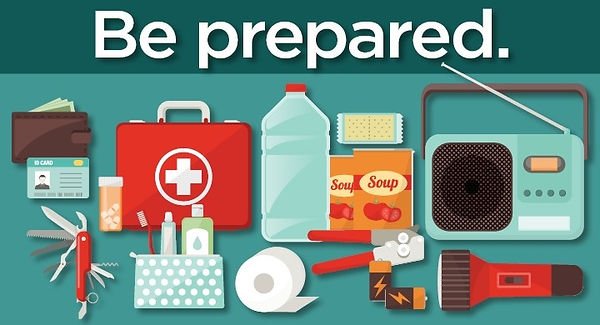
Living in the 72203 area, knowing how to get ready for power outages isn’t just smart; it’s essential. Think of it like packing a suitcase for a trip. You wouldn’t leave home without your essentials, would you? In this case, your essentials include food, water, and even a plan for entertainment. So, let’s dive into how to prepare for power outages, ensuring you’re ready to face them like a pro.
Understanding What Causes Power Outages
Before we jump into preparation, it’s helpful to know why power outages happen. They can occur for various reasons, like extreme weather conditions, equipment failure, or accidents. In Arkansas, storms with high winds or heavy rain can knock down power lines, leaving neighborhoods in the dark. Additionally, scheduled maintenance by utility companies can also cause temporary outages. Understanding these causes helps you better anticipate when you might need to be prepared.
Now, knowing the cause can also help you gauge the severity of an outage. For example, if a thunderstorm is forecasted, be proactive! You can prepare your home before the storm hits, so you won’t be caught off guard. Consider it like checking the weather before going out; preparation is key.
Building An Emergency Kit
Having an emergency kit is central to preparing for power outages. Think of it as your safety net during unexpected situations. Your kit should ideally include:
- Water: At least one gallon per person per day for at least three days.
- Non-perishable food: Think of items like canned goods, granola bars, and dried fruits.
- Flashlight and extra batteries: You don’t want to stumble around in the dark!
- First-aid kit: Accidents can happen, and being prepared is always wise.
- Multi-tool or Swiss army knife: These come in handy for several tasks.
Once you gather these essentials, store them in a designated, easily accessible spot. You might wonder, “How do I know what to include?” A good rule of thumb is to think about your family’s specific needs, including any medications or special dietary requirements.
Storing Food and Water Properly
During an outage, your fridge and freezer might not be reliable sources of food and drink. Here’s the thing: perishable food only lasts so long without power. To minimize waste, consider investing in a cooler and ice packs for essential items.
Store enough water for at least three days, as mentioned earlier. If you think about it, having a backup supply of bottled water is just like keeping an umbrella handy; you may not need it often, but when you do, you’ll be glad it’s there. Don’t forget to check your supplies periodically to ensure they’re fresh!
Power Sources: Generators and Battery Packs
When it comes to keeping your devices charged and your home illuminated during an outage, portable battery packs and generators are lifesavers. A generator can keep essential appliances running, like your fridge or heater. Before investing in a generator, consider what you actually need it for; do you want to power just the basics or everything?
Portable battery packs are great for charging devices like your phone or tablet. You might find it odd to think about staying social during a blackout, but a charged device can keep you connected and informed. Just like you wouldn’t leave the house without your wallet, don’t overlook these power sources when preparing for power outages.
Preparing Your Home
Now that you’ve got a plan for supplies, let’s talk about your home. Take some time to secure or protect any outdoor items that could become projectiles in a storm. Also, consider getting surge protectors for your electronic devices—they can save you from hefty repair bills.
Additionally, if you have a home security system, check that it has a backup battery. You wouldn’t want to lose that protection during an outage. This proactive step is like having a spare tire in your car; it’s a small effort that saves you big in the long run.
Creating an Emergency Plan
An emergency plan is essential for the whole family. Sit down and discuss what everyone should do in case of a power outage. Designate a meeting spot if you get separated, and make sure everyone knows how to contact each other. It’s a bit like planning for a family road trip; clear communication is key.
You might also want to include important phone numbers in your plan. Consider adding the numbers of local emergency services or friends who live nearby. Having this information handy can save you time and stress during a chaotic situation.
Entertainment During Outages
While it may seem trivial, having a plan for entertainment during power outages is essential—especially if you have kids. Think about board games, books, or even puzzles. Remember that downtime can be a great opportunity for family bonding!
Consider downloading some offline movies or music ahead of time. It’s like stocking up on snacks before a long road trip; you want to ensure everyone stays content. A little planning can make the darkness much more bearable.
Stay Informed
Last but not least, stay informed about potential outages. Sign up for alerts from your local utility company. This way, you’ll know when maintenance is scheduled or if severe weather is on the way.
Also, consider a battery-operated or hand-crank radio. In some cases, your phone might not have service, and you’ll want another way to receive updates. Think of this as a second lifeline when the first one goes out.
Preparing for power outages in zip code 72203 doesn’t have to be overwhelming. With a little planning and some essential supplies, you can turn a daunting situation into just a minor bump in the road. Remember, it’s all about being proactive. By ensuring you have food, water, power sources, and an emergency plan, you’ll feel more secure when the lights go out. So grab your flashlight, fill up your pantry, and maybe even plan a fun family game night—you’ve got this!